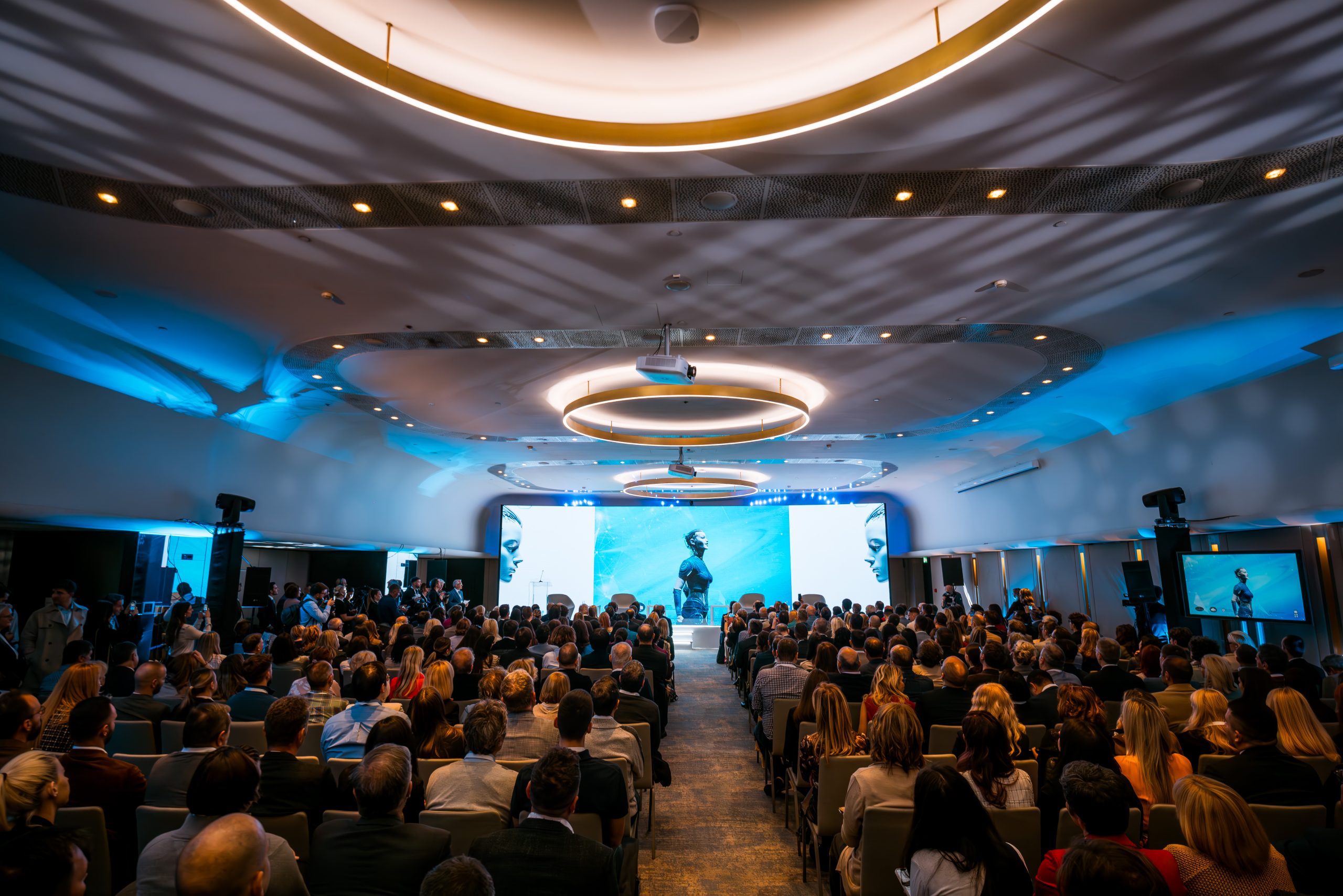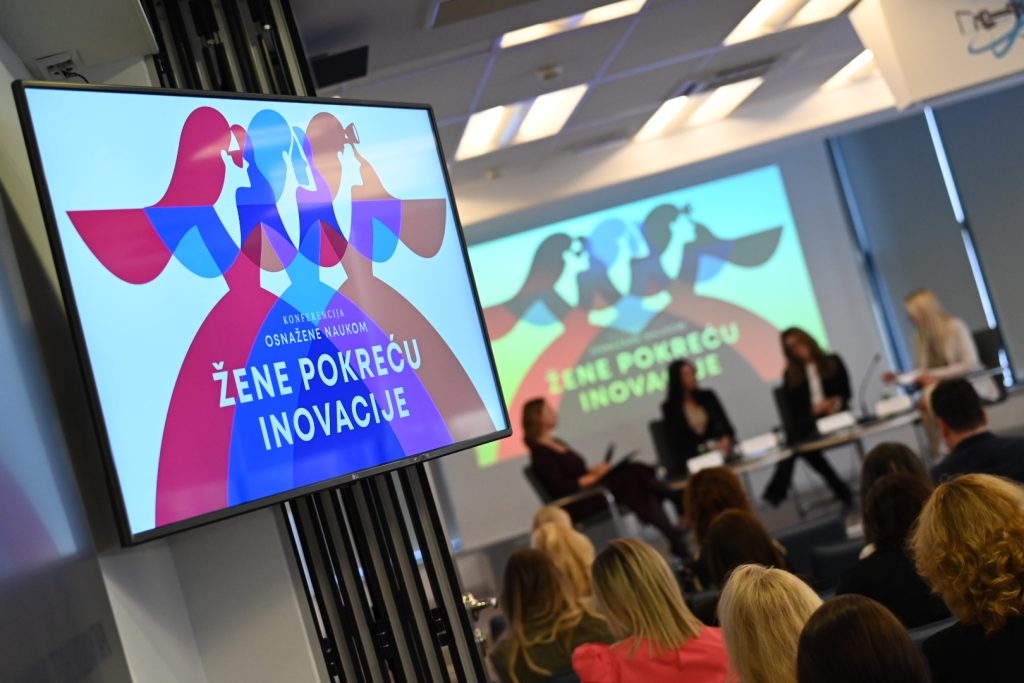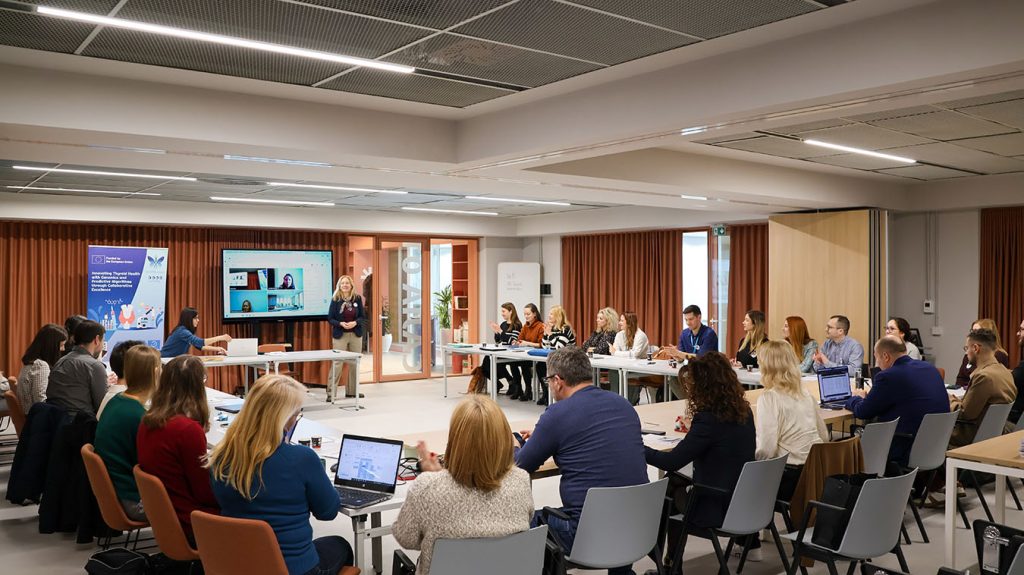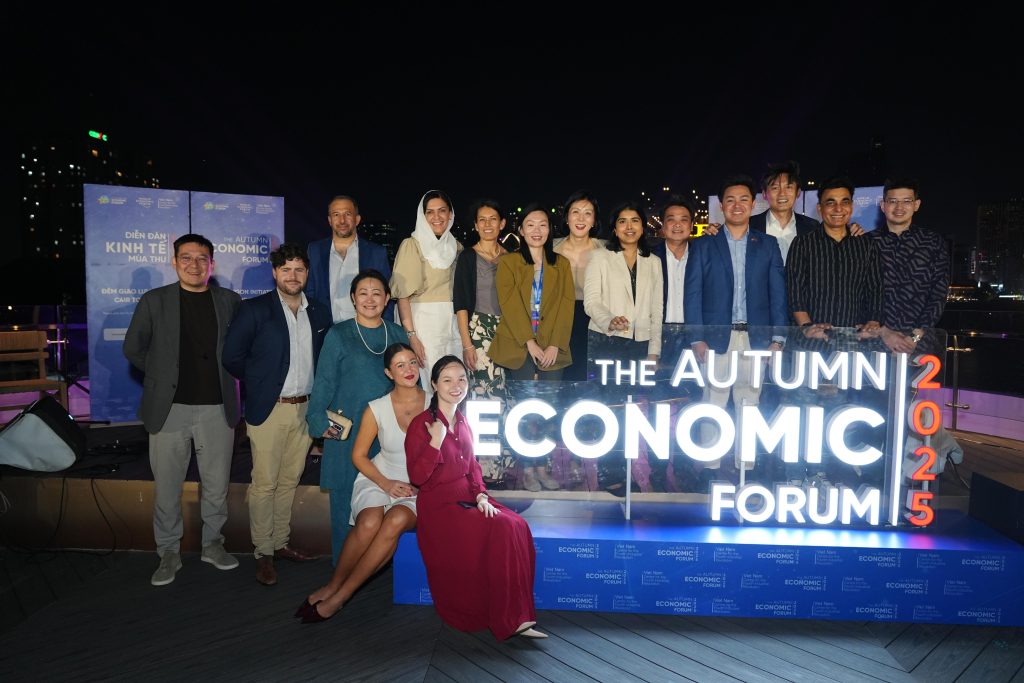The third annual AI 4 LIFE: Biotech Future Forum conference was held in Belgrade on October 24–25, 2024, marking an important step toward advancing biotechnology and artificial intelligence in Serbia. This event, part of the Serbian Government’s broader digital transformation initiative within the Fourth Industrial Revolution, was organized in collaboration with the National Assembly of the Republic of Serbia, the Ministry of Science, Technological Development, and Innovation, the Office for IT and e-Government, the Centre for the Fourth Industrial Revolution, the World Economic Forum, and the United Nations Development Programme (UNDP), with support from BIO4 Campus.
The conference program covered key topics in artificial intelligence (AI), biotechnology, and medical technology (medtech), focusing on the practical applications of advanced technologies in fields such as healthcare, agriculture, public administration, and environmental protection. The forum aimed to bring the benefits of AI and biotechnology closer to both professionals and the general public, in line with global trends in these areas.
More than 1,000 participants and speakers from 20 countries attended the event, including leading experts, representatives from government institutions, academia, and international organizations. Through panels, lectures, and workshops, participants discussed the latest trends, research, and challenges in applying technologies that shape the future.
The conference was officially opened by Dr. Jelena Begović, Minister of Science, Technological Development, and Innovation of the Republic of Serbia, Mirek Dušek, Managing Director of the World Economic Forum, and Ivana Živković, Assistant Secretary-General, Assistant Administrator, and Director for the Regional Bureau for Europe and Commonwealth of Independent States of the United Nations Development Programme.
Featured Panels and Discussions
National AI Strategies: This panel, which brought together key political leaders and decision-makers, focused on the role of digitalization and science in advancing various sectors, with an emphasis on national strategies for AI implementation aimed at improving citizens’ quality of life. Participants included Dr. Jelena Begović, Minister of Science, Technological Development, and Innovation of Serbia; Dr. Hankó Balázs, Minister of Culture and Innovation of Hungary; and Fabio Scano, WHO representative in Serbia.
Transforming Lives with Artificial Intelligence: AI experts discussed its transformative impact on industry and everyday life, focusing on innovation and addressing challenges. Panelists included leaders such as Boris Cergol from Comtrade System Integration and Bence Horvath, CEO of Spicy Analytics.
Screening for Breakthroughs: The Power of Genetic Data: This panel highlighted the importance of genetic data in the early diagnosis of diseases and the development of new therapies. It featured leading experts including Peter Goodhand, CEO of GA4GH, and Dr. Nevenka Dimitrova, lead scientist at Memorial Sloan Kettering Cancer Center, moderated by Jelena Bojović, Director of C4IR Serbia. Panelists discussed how genetic data could transform healthcare systems by enabling personalized therapies and early interventions for rare and chronic diseases.
Curing Cancer with Innovation: This panel presented innovative approaches to cancer treatment, with a focus on advanced therapies, including radiopharmaceutical development and applications. Panelists included Vladimir Cmiljanović, CEO of Swiss Rockets AG, and Richard Baum, Chairman of CURANOSTICUM, who discussed clinical approaches and research promising revolutionary changes in cancer treatment.
Insights from Unconventional Data: Particles, Space, Ocean: This session explored how unconventional data sources, such as those from oceans, space, and CERN, are used to address ecological challenges and promote sustainable development. The discussion included data science projects and their potential applications in solving global environmental issues, with panelists including Martin Molan from the University of Bologna, Mihailo Jovanović, Director of the Office for IT and e-Government of Serbia, and Draško Drašković, an innovation strategist.
Planting the Seeds of Sustainability: This panel was dedicated to the application of innovative technologies in agriculture, emphasizing their role in sustainability and modernization of the agricultural sector. The discussion focused on the benefits of digitalization and AI for efficient resource management and enhancing food production quality, moderated by Prof. Vladimir Crnojević, Director of the BioSens Institute, with speakers such as Alla Voldman-Rantzer, VP of Strategy and Policy at the Good Food Institute Israel, and Karim Engelmark Cassimjee, CEO and co-founder of EnginZyme.
Healthcare Innovations: Advancing Medicine for the Future: This panel focused on the role of new technologies in improving healthcare, with an emphasis on the digitalization of health systems and the future of healthcare. Experts discussed the application of AI, telemedicine, and advanced diagnostic tools that promise to enhance quality of life. Panelists included Vladimir Gligorijević, Senior Director for AI/ML at Prescient Design, Genentech; Henrik Ibsen, CEO of E-HealthBrains; and Georgio Francis, EMEA Channel Manager at Gleamer.
BIO4 Science: This panel showcased research projects by BIO4 Campus tenants, focusing on innovations that link science and industry. Panelists, including Dr. Ignacio Gonzales Suarez from Philip Morris and Dr. Nataša Jovanović Lješković, presented the latest advancements in biotechnology and their potential to improve health and sustainable development in the biotech sector.
Inspirational Keynotes
One of the highlights of the conference was the presentations by leading experts:
- Dr. George Yancopoulos, co-founder of Regeneron, spoke about the future of medical research, emphasizing the importance of genetic approaches and artificial intelligence in developing new therapies.
- Prof. Chris Voigt from MIT presented visionary approaches in synthetic biology, pointing to the vast possibilities biotechnology can bring in the near future.
- Dr. Nenad Tomašević, co-founder and CEO of Dren Bio, Inc., shared his pioneering insights on innovations in biotechnology, opening a discussion on new directions and breakthrough technologies in health tech.
- Prof. Danilo Mandic from Imperial College London captivated the audience with his perspective on the role of AI and engineering in advancing life sciences, demonstrating the transformative power of interdisciplinary thinking.
The first day of the conference was closed by Jelena Bojović, Director of C4IR Serbia, who highlighted the significance of this event for future steps in biotechnology and artificial intelligence in the region.
Day Two: Focus on Future Leaders and Workshops
On the second day, a masterclass titled Plenary Lecture for Young Leaders – Skills for the Future was held for students and young researchers from Belgrade, Novi Sad, Niš, and Kragujevac. More than 200 participants had the opportunity to learn from top experts, including Jelena Ružičić from UNDP Serbia, Nataša Cmiljanović, CEO of Swiss Rockets AG, Smita Pillai, Senior VP & Chief DEI Officer at Regeneron, Kevin D’Silva, co-founder of Serendipity Collective Ventures, and Max Talanov, senior researcher at the Institute for Artificial Intelligence.
In addition to the masterclass, several closed workshops were organized:
- EHDS Morning Health Talk: Discussion on the European Health Data Space (EHDS), in collaboration with EIT Health InnoStars, C4IR Serbia, and Takeda.
- Bioeconomy Workshop: Workshop covering recommendations for developing national strategies and commercializing biotech innovations.
- WEF Global Shapers Meeting: Meeting of the Belgrade branch of the Global Shapers community, dedicated to planning new initiatives and projects.
AI 4 LIFE: Biotech Future Forum 2024 once again confirmed its role as a key platform for knowledge exchange, connecting experts, and promoting innovation in biotechnology and artificial intelligence. With over 1,000 participants and 70 speakers from 20 countries, the event provided rich content and networking opportunities, fostering dialogue on the future of these critical fields.
You can find the full agenda, remarkable speakers, and additional information HERE.





